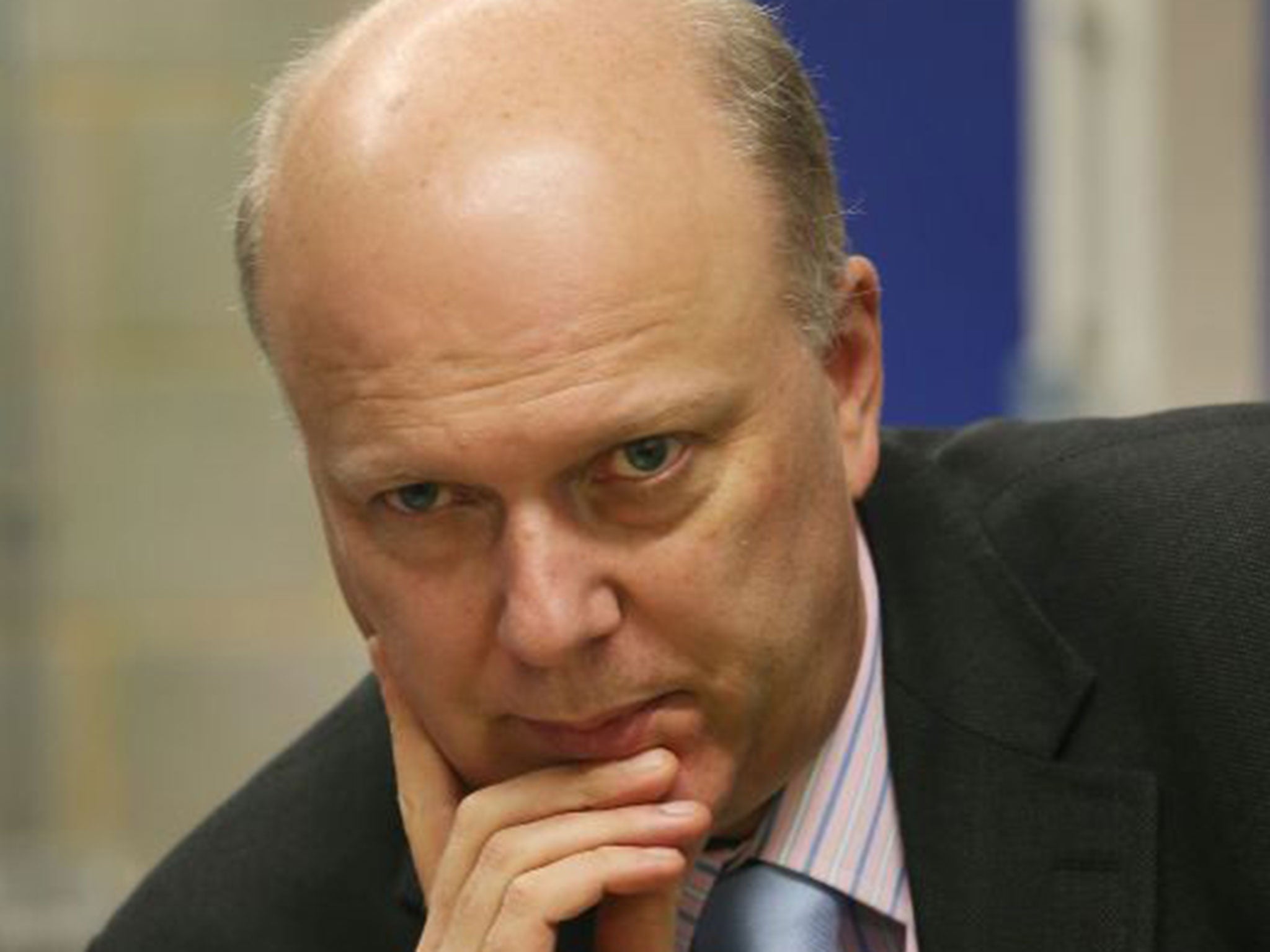Grayling shelves plan to double the fee for getting a divorce
The much criticised proposal would have seen the cost rise from £410 to £750

The Secretary of State for Justice, Chris Grayling, has quietly shelved plans to nearly double the fee for filing a divorce petition.
The much criticised proposal would have seen the cost rise from £410 to £750, which would have raised about £30m and helped reduce the Civil and Family Courts’ £150m annual deficit.
The true cost of an uncontested petition is only £270 – meaning the Government already makes an estimated £16.8m profit out of divorce – but the Ministry of Justice argued in a consultation last year that couples “would be prepared to pay a higher fee to complete the dissolution of the marriage”.
A Whitehall source said that the Liberal Democrat Justice minister, Simon Hughes, was furious about the proposal, which was pushed in a consultation launched shortly before he was promoted to Government late last year. He echoed complaints from the family law organisation Resolution, which argued in January that raising costs could force people to stay in broken marriages for longer, a circumstance that was “not in the best interests of children”. A government source denied there was a row between Mr Hughes and Mr Grayling, but added: “We don’t want to trap people in unhappy marriages. It’s a battle that Simon Hughes has won.”
The proposal was part of wider plans to increase the cost of going to court in England and Wales in certain types of cases, such as recovery of debts. The Government also argued that “hardworking taxpayers” should not have to subsidise disputes between multimillionaires.
Shailesh Vara, a Conservative Justice minister, said in the foreword to the consultation: “For many years, the civil and family courts have operated under the principle that those who use the courts should pay the full cost of the service they receive. But this hasn’t been fully achieved in practice, and hardworking taxpayers have had to pick up some of the bill.”
However, the senior judiciary criticised the proposals, describing them as a “novel concept” that “represents a departure from the Government’s policy of not charging more than a service costs”.
Join our commenting forum
Join thought-provoking conversations, follow other Independent readers and see their replies
Comments